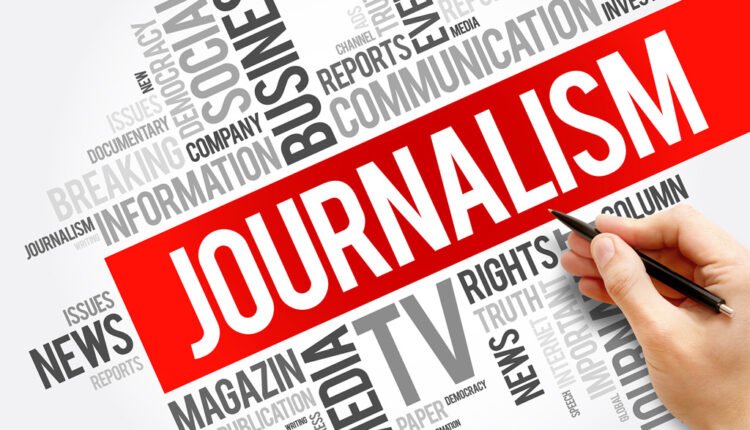WHEN JOURNALISM BECOMES A WEAPON, TRUTH BECOMES THE VICTIM: THE CASE OF JAAFAR JAFAAR AND UNETHICAL PRACTICE
WHEN JOURNALISM BECOMES A WEAPON, TRUTH BECOMES THE VICTIM: THE CASE OF JAAFAR JAFAAR AND UNETHICAL PRACTICE
By Sa’adatu Mohammed, Esq.
On August 25, 2025, the Daily Nigerian online newspaper ran a headline that made me stop in my tracks:
“Gov. Yusuf defends thieving aide, says protocol directorate under Ganduje spent N20 billion in 3 months.”
It was not just another sensational headline but an outright conviction of a man who had never been tried in a court of law. Abdullahi Ibrahim Rogo, Director General of Protocol at the Kano State Government House and aide to Governor Abba Kabir Yusuf, was condemned as a “thief”, not by a judge, not by evidence, not by due process, but by the pen of a journalist who seemed more interested in traffic than truth. This is the tragedy of our media landscape today.
Let us pause and ask: when did newspapers become courts of law? When did journalists arrogate the power of judges, pronouncing guilt where no conviction exists? Our constitution, Section 36(5), is unambiguous: “Every person charged with a criminal offence shall be presumed to be innocent until he is proved guilty.” This is not a decorative provision; it is the bedrock of justice, fairness, and democracy in our country.
Yet, in the court of public opinion, this constitutional safeguard is trampled upon daily by reckless reporting that substitutes sensationalism for substance.
The Human Cost of Media Recklessness
Many fail to realize that behind every reckless headline is a human being with a family, friends, colleagues, and a reputation built over decades of service. Abdullahi Ibrahim Rogo is no stranger to service. He has painstakingly earned his name through years of dedicated public duty, private enterprise, and humanitarian contributions to society. Yet, with the stroke of a pen, unscrupulous journalism now seeks to strip him of all he has worked for.
The cost is not abstract. His principal, Governor Abba Kabir Yusuf, must answer questions about allegations that are not backed by evidence. His family bears the weight of stigma. His children are forced to watch their father being dragged unjustly through the mud. His professional integrity, nurtured over years, is now under siege—not by law but by lies.
What the Media Won’t Tell You
The likes of Daily Nigerian will not tell the public that no court of law has found Abdullahi Ibrahim Rogo guilty of corruption. Yes, the Economic and Financial Crimes Commission (EFCC) in Kano investigates matters concerning the Protocol Directorate. Yes, the Independent Corrupt Practices and Other Related Offences Commission (ICPC), spurred perhaps by political undertones, attempted to interfere. But investigations are not convictions. Allegations are not evidence.
In a recent interview with the BBC Hausa Service, a senior ICPC director clarified that the widely circulated figure of ₦6.5 billion was not a stolen sum, but rather cash inflows linked to the cash-heavy nature of protocol operations. He further stated that ICPC had found no evidence personally linking Abdullahi to fraud.
The High Court of Kano State, in the civil action instituted by Abdullahi against ICPC, has now settled the matter: since no evidence connects him to corruption, there is no basis for the ICPC to harass, intimidate, or hound him.
Journalism or Political Propaganda?
Why, then, do some newspapers persist in portraying him as guilty? The answer is as old as politics itself: propaganda. In Kano’s heated political climate, truth is often the first casualty. Some media outlets have become convenient tools in the hands of political rivals, trading integrity for influence.
But journalism is not supposed to be a weapon of political warfare. It is considered the conscience of society, a defender of truth, and a guardian of justice. When newspapers’ reporters abandon these principles, they cease to be journalists. They become participants in the very corruption they claim to expose.
Read Also: ”Thieving aide story”:Daily Nigerian Publisher Jafar…
Why This Matters for All Nigerians
This is bigger than Abdullahi Ibrahim Rogo. If journalists can declare a citizen guilty without conviction and attempt to destroy his pristine reputation, then no Nigerian is safe. If false headlines are allowed to stand unchallenged, our democracy has no defenders.
That is why Abdullahi’s decision to take legal action against the Daily Nigerian journalists is not just about clearing his name; it is about drawing a line in the sand. Posterity demands it, and our collective conscience demands it.
A Call for Responsibility
We must insist on a higher standard. We must return to an era when facts mattered, reputations were not destroyed for clicks, and the media understood its solemn duty to inform, not misinform.
Abdullahi Ibrahim Rogo is innocent until proven guilty. That is not just his constitutional right; it is a principle on which our democracy rests. To trample on it is to trample on justice itself.
Until the day any court of law finds him not guilty, let the headlines reflect the truth: Rogo stands unconvicted, untainted by evidence, and has not returned a single penny to ICPC or EFCC or ICPC has not in any way uncovered any amount from Rogo, and is undeserving of reckless condemnation.
Saadatu Muhammad esq
Is a private lawyer, writes from Kano and can reached via

